Vascular Ultrasounds
Expert Cardiocare sonographers at our Cardiocare locations, perform vascular ultrasound testing to detect possible problems with patient’s blood vessels. We provide carotid ultrasounds, abdominal aortic ultrasounds, peripheral arterial ultrasounds, and ankle-brachial index tests in our vascular lab.
What Is a Vascular Ultrasound?
Vascular ultrasounds are non-invasive tests performed by a cardiac sonographer that allow your cardiologist to assess the structure of your arteries and veins as well as the presence of atherosclerotic plaque or blood clots in your blood vessels. These tests are also commonly called vascular dopplers.
During the procedure, you’ll lie on an exam table while the technologist applies the ultrasound probe to your skin. Your doctor and the sonographer may have specific instructions, so please ask if you have questions.
How Does a Vascular Ultrasound Test Work?
A vascular ultrasound technologist applies a small, handheld device called a transducer to your skin. The transducer sends out high-frequency sound waves that bounce off the blood vessels, creating detailed images. These images can help your doctor visualize the blood flow, identify blood clots, and assess the condition of your arteries and veins.
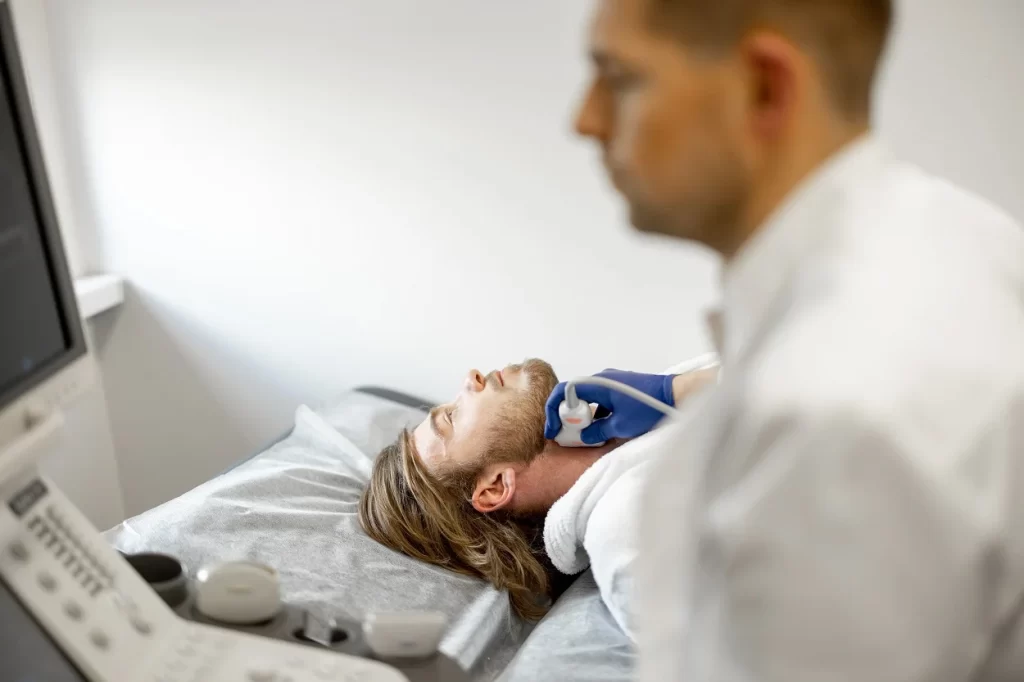
What Does a Vascular Ultrasound Show?
Vascular ultrasound images provide valuable information about the health of your blood vessels. Here’s what a vascular ultrasound can reveal:
- Blood Flow: It tells us the speed and direction of blood flow through your blood vessels.
- Blood Clots: It can identify blood clots that may be blocking blood flow.
- Artery and Vein Structure: It provides a detailed picture of the structure of your arteries and veins, including any blockages, narrowing, or bulging veins called aneurysms.
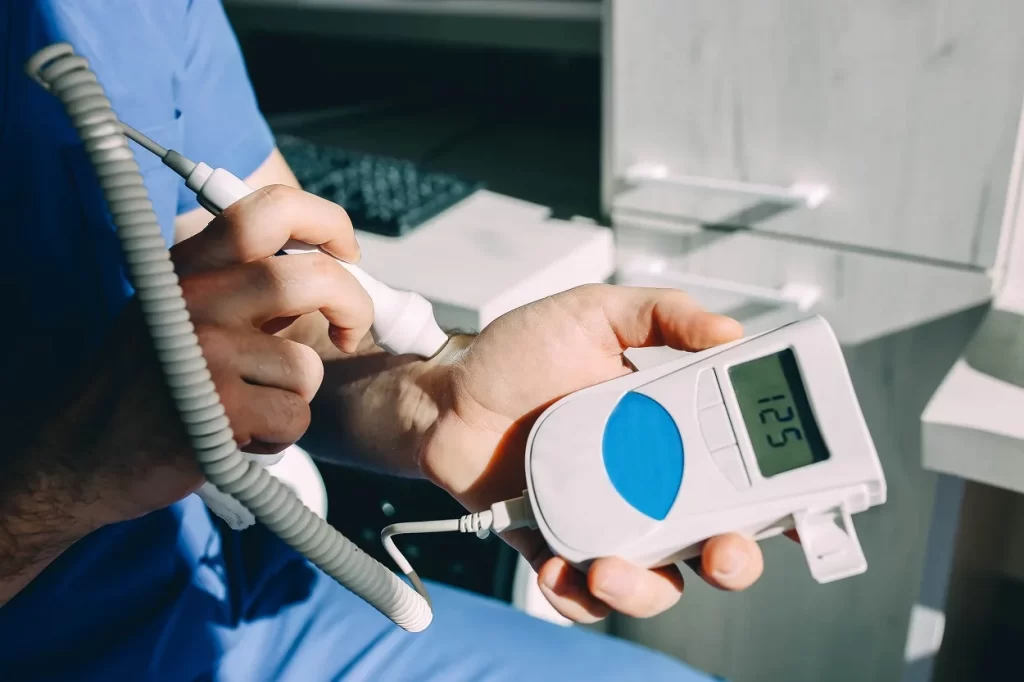
Types of Vascular Ultrasound Tests
CardioCare offers a variety of vascular ultrasound tests to assess the health of your arteries and veins. Each test uses sound waves to create images of blood vessels, helping diagnose a range of conditions.
Carotid Ultrasound
This test allows us to look for blockages in the carotid arteries, which are the main vessels feeding your brain. It can identify blockages or narrowing of the arteries and helps assess your risk of stroke.
Peripheral Artery Ultrasound
This test allows us to assess blood flow in the arteries of the legs and arms. It’s used to diagnose peripheral artery disease (PAD), a condition that affects blood flow to the limbs.
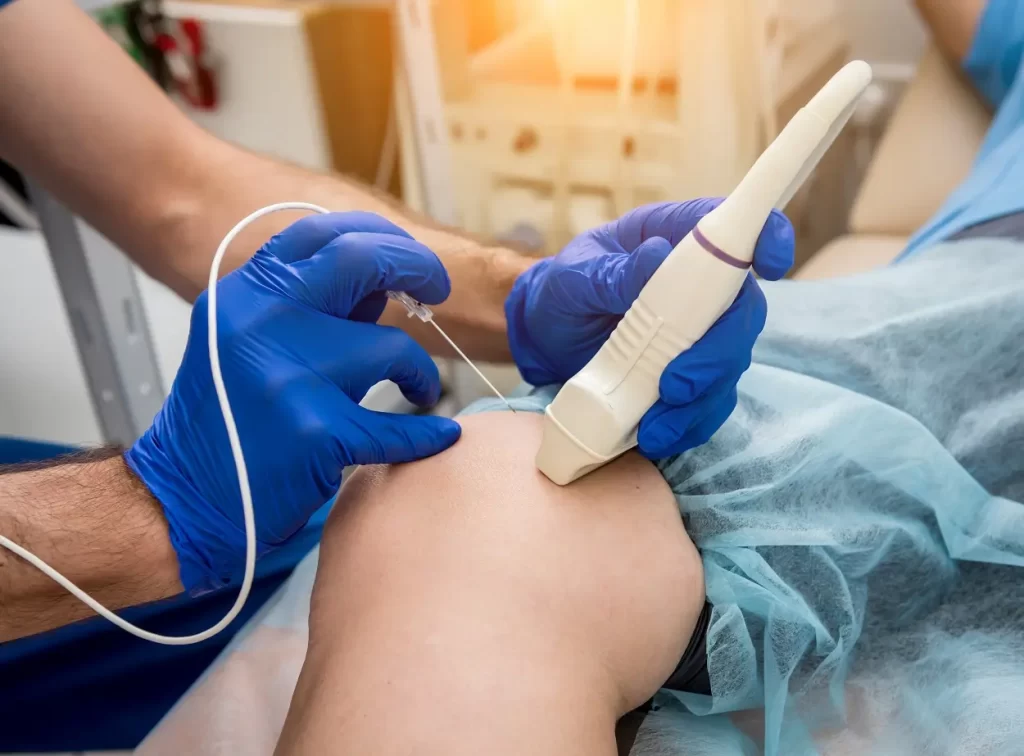
Deep Vein Ultrasound
This test evaluates the veins in your legs or arms. This test can help diagnose deep vein thrombosis (DVT), a serious condition where a blood clot forms in the deep veins.
Ankle Brachial Index (ABI)
This test measures and compares the blood pressures in the leg and arm to assess for the presence of peripheral arterial disease.
Abdominal Aortic Ultrasound
This test allows us to look at your abdominal aorta and assess for any aneurysms, narrowing, or significant cholesterol plaque.
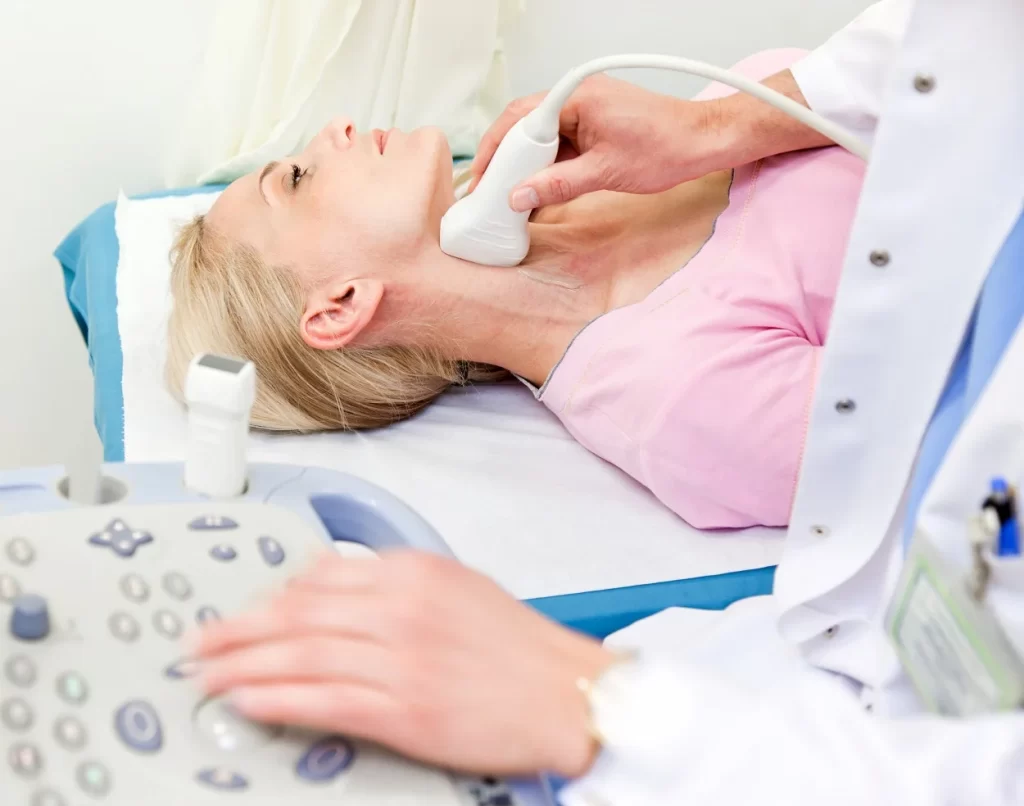
Benefits of a Vascular Ultrasound
A vascular ultrasound test offers a number of advantages, making it a valuable tool for diagnosing and monitoring vascular health.
- Non-Invasive: No injections or ionizing radiation are used.
- Painless: It is a comfortable and painless test.
- Accurate Diagnosis: It provides valuable information to help your doctor diagnose vascular problems.
This information can help your doctor create a personalized treatment plan to improve your cardiovascular health.
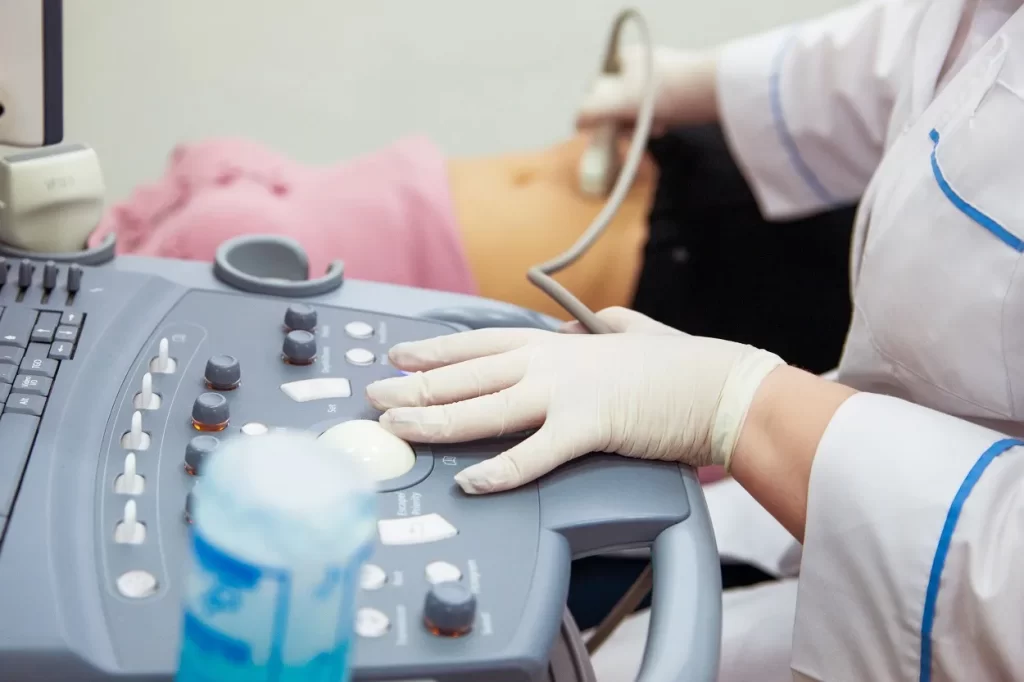
Why Might I Need a Vascular Ultrasound?
A vascular ultrasound is used as a valuable diagnostic tool for a variety of reasons. Your doctor may recommend a vascular ultrasound if you are experiencing any of the following symptoms:
- Dizziness or Lightheadedness: To examine blood flow to the brain and rule out stroke.
- Leg Pain or Cramps: To diagnose peripheral artery disease.
- Swelling in the Legs: To assess for deep vein thrombosis.
- Bulging Veins: To evaluate varicose veins.
If you are experiencing any of these symptoms, it’s important to consult with your doctor to determine the best course of action. They can discuss whether a vascular ultrasound is necessary and what other tests or treatments may be required.

How to Prepare for a Vascular Ultrasound
Here are some tips to help you prepare for your vascular ultrasound exam:
- Fasting: You may need to fast for a certain period before the test. Please consult with your doctor or the radiology technician for specific instructions.
- Hydration: It’s generally recommended to stay hydrated, but avoid excessive fluid intake directly before the test.
- Medication: Continue taking your prescribed medications unless otherwise instructed by your doctor.
- Clothing: Wear loose-fitting clothing that is easy to remove and put back on.
By following these guidelines, you can ensure a smooth and efficient ultrasound procedure.

Why Choose CardioCare for Vascular Ultrasound Services?
With over 15 years of experience, CardioCare provides exceptional care for your heart and vascular health. Here’s why our team is the right choice for your vascular ultrasound:
- We are board-certified cardiologists with extensive experience in interpreting vascular ultrasound results and developing personalized treatment plans.
- We utilize state-of-the-art ultrasound equipment for accurate and reliable assessments.
- We take the time to explain your results and discuss your options clearly and understandably.
- We offer convenient appointments at our many office locations in the DMV.


Vascular Ultrasound Reviews
You can wear anything you would like. Depending on what ultrasound you are having, you may need to remove some clothing but you will be provided with a gown to wear.
Depending on which type of vascular ultrasound you are having, the test can take between 15 minutes and 1 hour.
Your insurance should cover all or some of the cost of your ultrasound. Please call your insurance company to discuss your specific coverage. If you have further questions please call the office and ask to speak to the billing department.